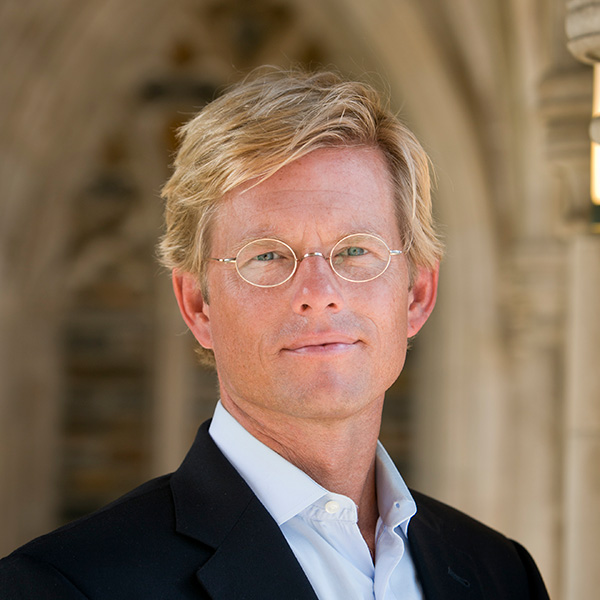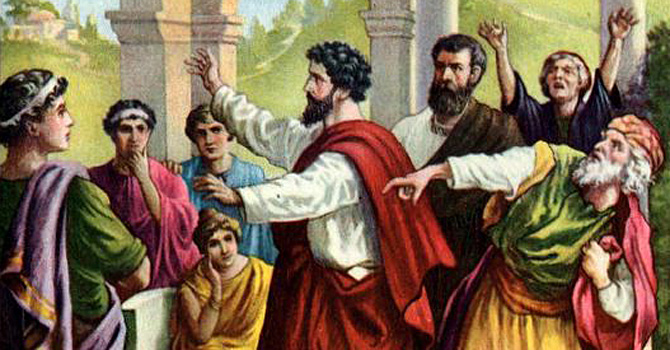One of the potential dangers in describing communities as “thriving” is that it can evoke images that have to do with health, strength and independence to the exclusion of sickness, weakness and dependence. A sickly infant, for example, can be described as “failing to thrive.” In its normal, everyday sense, “thriving” does not require us to include weakness within its definition.
The Acts of the Apostles would teach us otherwise. In Acts, “thriving” includes provision for and inclusion of the weak and downtrodden. Such inclusion and provision, however, is not an extension of the core mission of the Christian community. It is, rather, part of the core mission itself. As counterintuitive as it may be to us today, the meaning of “to thrive” in relation to the communities in Acts always includes weakness.
The most striking way Acts presents this is through the narration of the church’s first deep communal conflict -- the first real threat to its thriving (6:1-6). The conflict arose when the so-called Hellenists (Greek-speaking Christians) began to complain against the Hebrews (Aramaic-speaking Christians). “Now in these days when the disciples were increasing in number, the Hellenists murmured against the Hebrews because their widows were neglected in the daily distribution” (6:1 RSV).
As Acts states it, the reason for the complaint was simple: the Hebrews were neglecting the Greek-speaking widows in the daily distribution of provisions. We are not told the specific motive behind such neglect; we are given only the bare fact itself. For an ancient reader, however, such information was more than enough. Widows, as everyone knew, were among the most vulnerable of people in the ancient world. To neglect them was to neglect the lowly, a practice that runs counter to the most basic affirmations about the nature of God’s kingdom proclaimed since before Jesus’ birth. As Luke himself puts it, for example, in the beginning of his Gospel, the coming of God in Jesus Christ was in part to fill “the hungry with good things” (1:53).
Yet the neglect by the Hebrews was not only physically problematical. It was also an active proclamation of the lie that the Christian church is a place that has no room for the vulnerable.
Though Acts devotes only a few sentences to this controversy, we know it threatened to undermine the church, because authorities of no less clout than the twelve apostles themselves are needed to resolve the problem. And the twelve, in turn, summon other leaders of the church and develop a more elaborate structure of authority -- deacons. “And the twelve summoned the body of the disciples and said, ‘… Pick out from among you seven men of good repute, full of the Spirit and of wisdom, whom we may appoint to [the ministry of serving tables]’” (6:2-3). By developing an enduring structure to deal with the potential rupture in the church, the apostles display a central feature of the thinking of the church’s leaders in Acts: they look beyond the need to “fix” a problem (of which there are several in Acts) and instead think from a long-term perspective about the conditions needed for the church to thrive. That such a long-term, structurally focused perspective is powerfully depicted in relation to the provision for the weak should be no surprise to the reader of Acts: as Acts says explicitly in its depiction of Christian life in chapters 2:41-47 and 4:32-37, provision for all is fundamental to the thriving of the early Christian communities.
No less significant is the connection between this scene in Acts 6 and the scene in Antioch in Acts 11. In the Antioch scene, we learn that it was in this city that those who followed the Lord Jesus were first called “Christians” (11:26 -- significantly, a designation given not by the Christians to themselves but by “outsiders” looking at an identifiable group). Narratively seen, the connection between the two scenes makes the point that to be part of an identifiable group called Christian is already to include the weak and vulnerable. Thriving to the point that outsiders can recognize something new and different in the world -- the community called Christians -- is necessarily dependent on the community’s ability to create lasting structures that include the widows. To read Acts is to see clearly that the Christian understanding of a thriving community must always define “thriving” as “inclusion of the weak.”
This is part of a series. Learn more about the concept of Thriving Communities »














